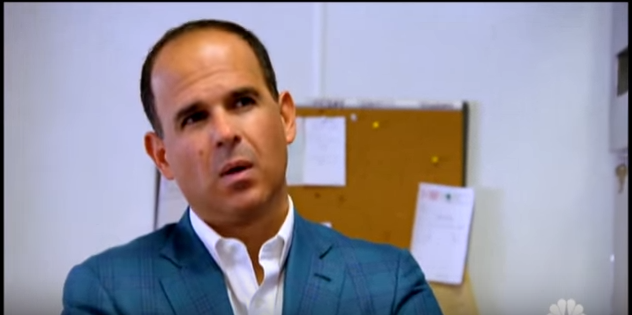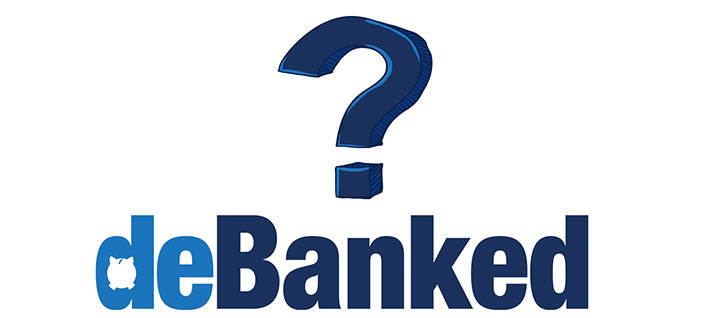Archive for 2021
Intuit Originated $232M in Small Business Loans in Fiscal Year 2021
August 30, 2021 Intuit, the producer of QuickBooks and owner of Credit Karma, originated $232M in small business loans for the fiscal year of 2021 that ended on July 31. That was slightly below fiscal year 2020’s $243M and down significantly from 2019’s $316M. Cumulatively, however, the company has originated approximately $928M since it started lending at the end of 2017.
Intuit, the producer of QuickBooks and owner of Credit Karma, originated $232M in small business loans for the fiscal year of 2021 that ended on July 31. That was slightly below fiscal year 2020’s $243M and down significantly from 2019’s $316M. Cumulatively, however, the company has originated approximately $928M since it started lending at the end of 2017.
QuickBooks Capital requires that applicants have their bank accounts connected to the QuickBooks software and revenue of at least $50,000 over the past 12 months. APRs can range anywhere from 9.99% APR to 34% APR.
Intuit completed its acquisition of Credit Karma at the end of last year. Credit Karma generated a quarterly record revenue of $405 million.
Something’s Coming
August 27, 2021Update: Surprise, it’s the industry’s first reality show.
On Monday, deBanked will make an announcement about something new. What could it be? Any ideas?
I guess you’ll have to find out by subscribing to our email newsletter. Of if you’re already subscribed, stay tuned.
🙂
IOU Financial Breaks All-Time Internal Loan Originations Record
August 26, 2021 IOU Financial originated $34.4M worth of small business loans in Q2, the company reported, a 272% increase over the same quarter last year. July was IOU’s best month ever, coming in at $18.5M in originations.
IOU Financial originated $34.4M worth of small business loans in Q2, the company reported, a 272% increase over the same quarter last year. July was IOU’s best month ever, coming in at $18.5M in originations.
The achievements follow a slew of announced changes, including new hires and a cash-back loan product.
“We are delivering on our Post-Pandemic Growth Plan and these growth figures are the result,” said Robert Gloer, President and CEO, in the quarterly earnings announcement. “We are committed to continue delivering on our plans and maximizing the growth potential of the marketplace strategy.”
The company hopes to originate between $165M to $200M of business loans for the year, which would be their best year ever, according to the deBanked Small Business Funder Rankings.
MJ Capital Investors Allege Wells Fargo Knew MJ Capital Funding Was a Ponzi Scheme
August 24, 2021 A class action lawsuit filed in the Southern District of Florida on behalf of MJ Capital Funding’s investors is alleging that Wells Fargo knew that the company was a ponzi scheme.
A class action lawsuit filed in the Southern District of Florida on behalf of MJ Capital Funding’s investors is alleging that Wells Fargo knew that the company was a ponzi scheme.
“Wells Fargo knew based on its Know Your Customer inquiries that the MJ Companies were supposed to use investor monies to lend to small merchants, which would then repay the loans, the proceeds of which would be used to pay back investors. Wells Fargo monitored the MJ Companies’ accounts and saw that’s not what happened. Very little money that left the MJ Companies’ accounts went to merchants. Millions instead went to [the CEO’s] personal account at Wells Fargo, to MJ Companies’ sales agents or back to other investors.
Despite this knowledge, Wells Fargo substantially assisted the MJ Companies by allowing them to continue operating with Wells Fargo accounts, commingle investor funds and make payments via wire, transfer and check. Garcia and the MJ Companies’ banking activities at Wells Fargo were integral to her scheme to defraud investors.”
The claims are for aiding and abetting fraud, aiding and abetting breach of fiduciary duty, and unjust enrichment.
MJ Capital is estimated to have raised between $70M and $128M from investors over roughly one years time. The company is being sued by the SEC for securities fraud and its assets have been frozen pursuant to a court order.
The case # is: 0:21-cv-61749-RAR
The Cash Advance of the Student Loan Industry Agrees to Be Treated Like a Loan
August 23, 2021 If you thought only small businesses were selling their future income for cash upfront, then you haven’t been paying attention to the student loan industry.
If you thought only small businesses were selling their future income for cash upfront, then you haven’t been paying attention to the student loan industry.
More than five years ago, fintech companies channeled the MCA concept into student lending. Called an Income Share Agreement, it works just as you would think, the funder advances tuition costs to the student and in return the student pays a fixed percentage of their gross income after graduation, but only if they are gainfully employed. They’re not loans and there’s no penalty if the amount paid back to the funder is less than the amount funded. It is essentially an MCA for college kids.
When deBanked interviewed a student named Paul Laurora about two years ago, Laurora said that in exchange for tuition money, he had agreed to pay 2.57% of his income for 7 years, whether he made a lot, a little, or nothing at all. The funder is making a bet that it will get a considerable return on its investment, but takes the risk of getting nothing if the graduate isn’t working during that time period or earns less than anticipated.
Laurora compared paying that way versus what his friend was faced with, which was to pay $230,000 either with cash or with student loans to attend NYU.
“ISAs” typically enjoy the regulatory benefit of not being a loan, but that could all change.
In California, the state’s Department of Financial Protection and Innovation took issue with a funder’s ISAs when they applied for a Student Loan Servicing license, a requirement in the state. That funder was named Meratas, a New York company that’s headquartered in Connecticut. Meratas’ encounter with the California DFPI resulted in a consent order on August 5th that will have the company’s ISAs treated as student loans and make Meratas an approved Student Loan Servicer.
“[This] action shows we are taking significant steps to better protect California student borrowers,” said DFPI Senior Deputy Commissioner Suzanne Martindale, whose Consumer Financial Protection Division oversees the student loan servicing law. “Regulating income share agreements like student loans levels the playing field and creates a fair marketplace that protects all consumers.”
Though the agreement only applies to Meratas, it could set a precedent for treatment of ISAs in the state.
Meratas celebrated the arrangement as a win.
“Because income share agreements do not fit neatly into existing federal or state legal regimes, we felt it prudent to be proactive at the state level, starting with California,” says Meratas founder and CEO Darius Goldman. “We are excited to work with the DFPI in its efforts to craft ISA-specific regulations for the benefit of all industry participants. Our partners take comfort in knowing that Meratas continues to be the leader in responsible and consumer-friendly ISA programs.”
A Lawsuit Against Marcus Lemonis & Others is Alleging That “The Profit” Is Scamming Small Businesses
August 22, 2021 Marcus Lemonis, the star of CNBC’s show The Profit, is no stranger to litigation, but a proposed amended complaint recently filed against him in a year-old dispute really lets loose. The 165-page grievance reads like its own reality show, in which plaintiffs assert that Lemonis is nothing more than a fraud.
Marcus Lemonis, the star of CNBC’s show The Profit, is no stranger to litigation, but a proposed amended complaint recently filed against him in a year-old dispute really lets loose. The 165-page grievance reads like its own reality show, in which plaintiffs assert that Lemonis is nothing more than a fraud.
“While he pretends to be savior on TV to save businesses, Lemonis actually and purposefully sets out to acquire them for himself and ruin them financially,” plaintiffs contend.
Forbes turned the allegations in the proposed amended complaint into an exposè about Lemonis and his TV show, leading with a photo of him that is captioned, “The Profit or Profiteer?” It racked up more than 33,000 views in the first 24 hours at last count by deBanked.
But the lawsuit filed by Nicolas Goureau, Stephanie Menkin, and ML Fashion, who were first filmed for the show in 2014, is a bit overshadowed by the fact that this is their 2nd amended complaint and that a motion to dismiss their previous one was already pending.
The latest one highlighted by Forbes is communicated to the public as being the culmination of an “eight-month investigation” carried out with the help of a “former district attorney and a top law school professor, and a world renown psychiatrist that was spurred by the coming forward of no less than seventy (70) family businesses that have been destroyed…”
The identities of the people who carried out the “investigation” are not shared and the 70 “destroyed businesses” are not co-plaintiffs. At times, it is hard to take the complaint seriously when it casually asserts sensational facts, like one that says a participant on the show killed themselves but it doesn’t say who they were, where they worked, or any other details about the death.
Plaintiffs are seeking at least $12 million in damages and they have just added NBC Universal Media, LLC as a defendant.
Lemonis contends that the plaintiffs earned $3 million for their labor and that they charged $1.3 million in personal expenses on the company credit card.
Overall, it’s probably unwelcome press for the show given that the eighth season just debuted. Many people in the small business finance community are fans of the show. In 2017, Lemonis personally criticized Kabbage, saying that they weren’t a friend of small business.
Lemonis is currently hosting a contest on twitter where small businesses are competing to win $10,000 by submitting their pitch.
Win $10,000 for your business …. Make your best pitch … must use #TheProfit to submit your pitch pic.twitter.com/8CuZAN5SJ0
— Marcus Lemonis (@marcuslemonis) August 21, 2021
Robinhood Posts Q2 Net Loss of $502M, Shareholders/Fans Pick Management’s Brain on the Call
August 19, 2021 Robinhood posted a massive net loss last quarter to the tune of $502M on only $565M in revenue.
Robinhood posted a massive net loss last quarter to the tune of $502M on only $565M in revenue.
Following the announcement, the company’s earnings call was a bit unusual, sounding more like a live AMA Reddit thread as the platform’s shareholders were given an opportunity to talk to senior management, a platform usually reserved only for Wall Street analysts. This format led to the submission of 1,300 questions, way more than could be answered in the time allotted, so only the most upvoted were selected to be answered on the call itself.
One person asked if they could get a Robinhood hat and hoody jacket, a surreal insight into how shareholders are thinking about a company that lost $2 for every dollar it brought in last quarter. Another shareholder asked if Robinhood was getting a crypto wallet.
“…I know that there’s been a ton of enthusiasm from the crypto community and the Dogecoin community in particular, on getting access to wallets and it’s something that our teams are working on,” said Robinhood CEO Vlad Tenev.
When the shareholders’ turn was over, the analysts took control, asking more pointed questions, like what happens when Robinhood runs out of potential customers that have so far comprised the demographic that led to the company’s early success.
Tenev said that “I think more and more, you’re going to see Robinhood, particularly with our mobile first platform and ease of use, be become incredibly attractive to folks that haven’t previously considered Robinhood, is the go to place. So we’re pretty optimistic about the opportunity ahead of us. And that’s limiting the response to investing. I think there’s a lot more that we can do, when we talk about being the single money app for our customers.”
The company’s stock went down slightly after earnings.
How the MJ Capital Funding Alleged Ponzi Scheme Played Out in Real Time
August 18, 2021 After the SEC shut down Pompano Beach-based MJ Capital Funding for running what is believed to be a $100M ponzi scheme, more than 2,000 investors are now struggling to figure out what happens next. But in hindsight, could they have known the risks?
After the SEC shut down Pompano Beach-based MJ Capital Funding for running what is believed to be a $100M ponzi scheme, more than 2,000 investors are now struggling to figure out what happens next. But in hindsight, could they have known the risks?
Apparently, questions about MJ Capital had been circulating for months. A thread on Reddit with nearly 700 comments is now one of the best preserved insights into the company’s investor community mindset during 2021. There, posters traded anonymous barbs and insults in a spirited debate that challenged the company’s legitimacy. Those that argued it was a ponzi scheme were shouted down with reassurances from people claiming to be paid regularly.
“Scared money makes no money” is a mantra that comes up repeatedly.
The comments are eye-opening in retrospect as posters claim to have invested their life savings or know people that did on the hope that they would make 10% interest on their investment EVERY MONTH. One poster claims that his friend quit his job to promote MJ Capital full time and that he shaved his head, bought a suit, rented an office in Miami “and became some investment f***ing guru even though he could barely explain what the company would do with my money if I gave it to him.”
At least one person said that a friend invested as little as $1,000 into the company, an astonishingly small sum for an operation that is alleged to have raised as much as $129M in little over a year’s time.
Even now with the company’s assets frozen and a receivership in place, some users are wondering if that means their monthly checks will be delayed. Others are confused as to what the SEC lawsuit and temporary restraining order even mean.
“I am out a significant amount of money,” one user wrote. “Literally, my life’s savings. I am scared shitless as I am unaware of what will happen and if I will get my money back. Does anyone know what the odds are for investors who have not received any of their investment back?”
Despite all this, at least one poster thought the SEC’s reference to an undercover FBI operation could work in MJ Capital’s favor since an FBI agent, who posed as an investor, not only made an investment but also got paid.
“Anyone can go to the SEC or FBI to file a complaint about a company to bring them down,” they said. “And of course they are going to look into it. But facts hold up in court. The case file it self says that the [Undercover Agent] made an investment and got paid, proving that the business isn’t a scam and it works. Nothing illegal about what the company does.”
Meanwhile, on instagram, those claiming to be victims have been busy tagging accounts of the people who promoted the investment to hold them accountable. Most of those tagged accounts have already been made private and are not publicly accessible.
To deBanked’s knowledge, no criminal charges have been filed against anyone in connection with this case and it remains a civil matter with charges not proven.






























